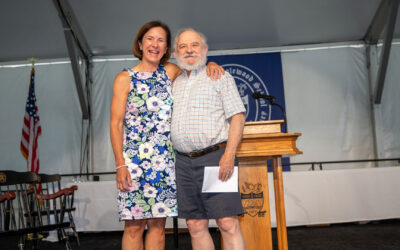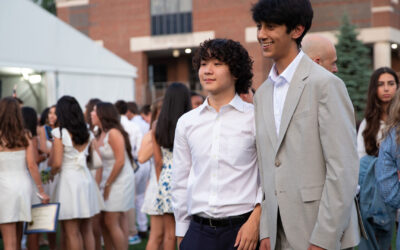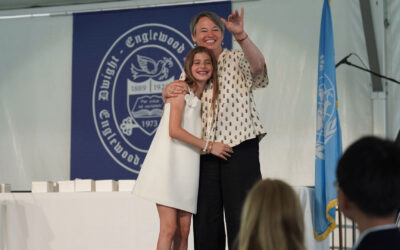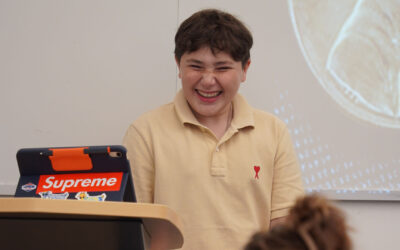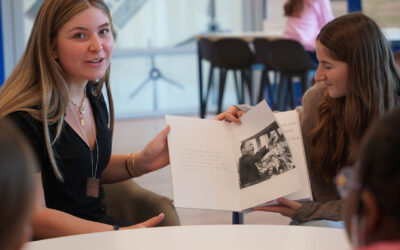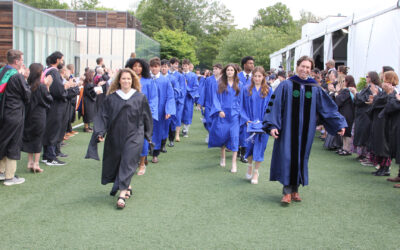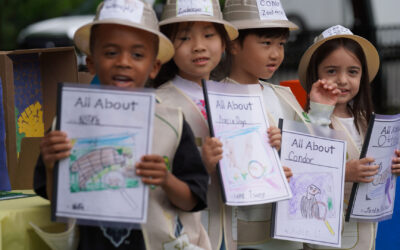As shared in the last issue of D-E Today, earlier this academic year the Board of Trustees announced their unanimous selection of Dr. James Calleroz White as Dwight-Englewood’s next Head of School. Board President Dr. Ami P. Vaidya ’91, P ’24, ’26, noted, “Amidst an...
Bulldog Bash 2025: The Sky Was the Limit!
Our 2025 Bulldog Bash was a tremendous success, raising $640,000 in support of financial aid - just shy of our ambitious $700,000 goal. Given the leadership transitions and broader challenges, this achievement is a true testament to the resilience and generosity of...
Spring Carnival Celebrates Community
High winds didn’t ruffle the spirit of community that beamed across Leggett Field from late morning into the afternoon during the annual Spring Carnival! This year’s event—an annual collaboration between D-E Student Activities and the Parents’ Association— included...
Faculty & Staff Lunch
D-E celebrated its teachers and staff during the annual Faculty & Staff Lunch on June 12. Interim Head of School Preeti Fibiger P ’24 thanked all of those who have put in 10, 20, 25, 30, 35, and 40 years of service. She also presented The Blackwell Award to...
Eighth Grade Moving Up Ceremony
On June 6, D-E eighth graders, dressed in summer white, gathered on Leggett Field for the Eighth Grade Moving Up Ceremony. MS Principal Jonathan Davis P’24 opened with remarks in his signature jocular style. He gave a special shout-out to Coach and Eighth Grade...
Fifth Grade Moving Up Ceremony
Fifth graders completed their era as members of the LS on June 6, during their Moving Up Ceremony on Leggett Field. Interim CoPrincipal Susan Abramson welcomed everyone and reflected on why this ceremony was not a promotion (as that infers moving on to a higher...
‘Meet the Challenges and Make It Better’ Presentations
D-E families visited seventh-grade classrooms to listen to students’ “Meet the Challenges and Make It Better” presentations tied to the United Nations’ Sustainable Development Goals, which seek to address global issues such as climate change, environmental...
Eighth Graders Write Historical Children’s Books
For their American History class, eighth graders wrote and illustrated children’s books based on a historical event from the 1960s. According to Mr. Gautham Akula, Eighth Grade English/ History Teacher, this was a pilot project to teach students “how to create an...
Commencement 2025
The mood was joyous and bittersweet on June 1 as D-E’s graduating seniors, their families, faculty, and staff gathered on Leggett Field for the Commencement ceremony. This momentous event was called to order by Student Government President-Elect Max Koppelman ’26, and...
Kindergarten Zoo
A beloved annual tradition returned to the LS on May 30 when the Kindergarten Zoo was set up by LS teachers Ms. Tricia Fiore P’16,’19, Ms. Kristina Dellefave, Ms. Teresa Cali, and Ms. Meghna Mathur on Mr. Rocky’s Field. Enthusiastic kindergarteners, donning safari...




